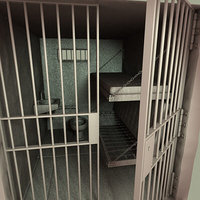If you want to reaffirm a debt after filing for bankruptcy, your must executed a new agreement with your creditor. This reaffirmation agreement must be written and must be signed by both you and the creditor. Should you sign this reaffirmation agreement? Here are some pros and cons.
Pros
First, if you want to keep the property, you must sign the reaffirmation agreement. Also, if you do sign, you will be certain what your payments will be, what your interest rate is, etc. Signing a reaffirmation agreement may also help rebuild your credit, since you are taking responsibility for a pre-filing debt and are making regular payments on a debt.
 Jacksonville Bankruptcy Lawyer Blog
Jacksonville Bankruptcy Lawyer Blog




 Upon filing for bankruptcy protection, an automatic stay is put in place. This means that creditors can not try and collect from you. So a creditor cannot call you to request payment, send bills to you, garnish your wages anymore, or repossess your car without court permission. If there is a foreclosure suit against you, that suit must also stop immediately. If your home is sold and you filed prior to the sale, that sale can be vacated. Obviously, this is a powerful tool bankruptcy. Many people file to stop creditors from taking actions against them or their property.
Upon filing for bankruptcy protection, an automatic stay is put in place. This means that creditors can not try and collect from you. So a creditor cannot call you to request payment, send bills to you, garnish your wages anymore, or repossess your car without court permission. If there is a foreclosure suit against you, that suit must also stop immediately. If your home is sold and you filed prior to the sale, that sale can be vacated. Obviously, this is a powerful tool bankruptcy. Many people file to stop creditors from taking actions against them or their property.  The Federal Housing Finance Agency is reviewing a proposal that would permit Judges of Chapter 13 cases to give 0.00% interest rates on FHFA loans during the duration of the five year cases. Since about 90% of all U.S. Mortgages are FHFA backed, this would allow nearly all mortgages to have zero interest rates for five years. This comes on the heels of the
The Federal Housing Finance Agency is reviewing a proposal that would permit Judges of Chapter 13 cases to give 0.00% interest rates on FHFA loans during the duration of the five year cases. Since about 90% of all U.S. Mortgages are FHFA backed, this would allow nearly all mortgages to have zero interest rates for five years. This comes on the heels of the  A Shreveport, Louisiana man was
A Shreveport, Louisiana man was